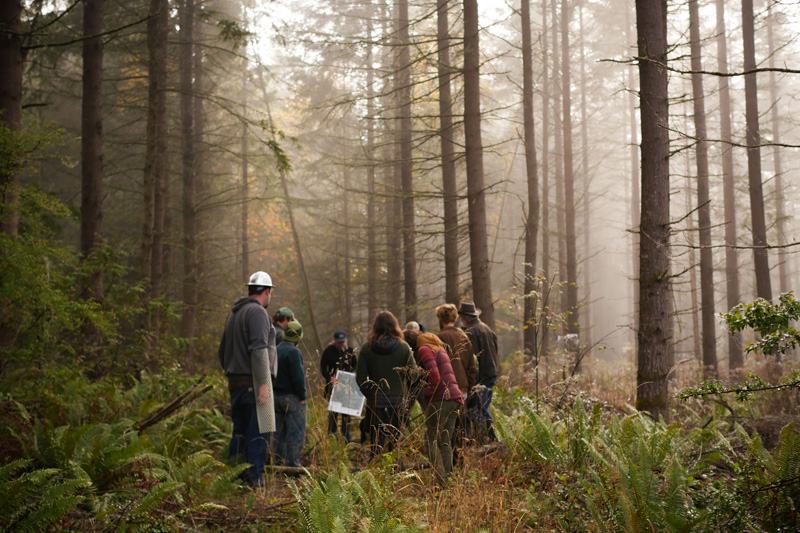For many years, Washington Environmental Council has worked to improve management of Washington’s state forests, creating a model of sustainable forestry that protects the environment and benefits all the people of the state. Now we are working toward a new future for Washington’s forests, one that addresses questions like how we can use incentives to take management of Washington’s private forests to the next level of environmental benefit. This means storing more carbon, providing better wildlife habitat, and helping to keep our water clean and abundant, all while producing valuable wood products and a significant number of local jobs.
This work focuses on elevating Washington forests’ role as natural climate solutions in the fight against climate change, securing funding for community forest projects and conservation easements, protecting drinking watersheds, and promoting climate-smart wood procurement for building materials.

NISQUALLY CARBON PROJECT
Microsoft purchased carbon credits to offset emissions in their own backyard – at the foothills of Mount Rainier – thanks to our certification of forestland with the Nisqually Land Trust.
MOUNT ADAMS COMMUNITY FOREST REPORT
WEC and a team of partners have shown how forest management focused on ecological health, civic engagement and local employment is building local wealth and well-being in a report titled Economic Impacts of the Mt. Adams Community Forest: 2014-2017.
CHIMACUM RIDGE FOREST
Check out our video about the Chimacum Ridge forest project, and how it’s delivering benefits for the environment, economy, and ecosystem
STATE OF OUR FORESTS REPORT
The State of Our Forests and Public Lands report looks back on the Commissioner of Public Land’s past year in office to reflect on where progress has been made, where work still needs to be done, and where things need improvement.
CLEAN WATER STATE REVOLVING FUND
The CWSRF makes new funding available to local governments, tribes, and their conservation partners to protect working forestland at a watershed scale.
Program contact
Max Webster, Evergreen Forests Program Manager

